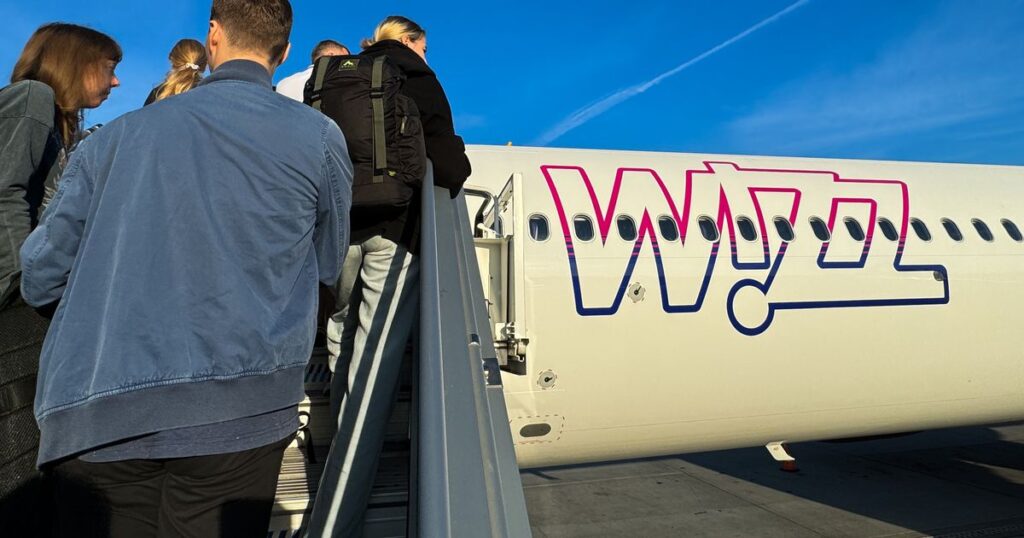Wizz Air has recently encountered notable opposition from shareholders during its annual general meeting concerning the proposed compensation package for CEO Jozsef Varadi. The tension stems from a substantial pay proposal amidst ongoing operational difficulties.
These events highlight the broader governance and financial strains within the airline, further aggravated by a series of external challenges.
Shareholder Backlash at AGM
During Wizz Air’s recent annual general meeting (AGM), a significant revolt emerged among shareholders regarding the proposed remuneration package for Chief Executive Jozsef Varadi. The proposed compensation package includes a restricted share award equivalent to 300% of his £710,534 salary, sparking unrest within the shareholder community.
The airline’s remuneration policy was met with resistance, as 34.42% of shareholders voted against it. This dissent highlights the growing dissatisfaction with executive compensation amidst the airline’s operational challenges.
Controversial Incentive Schemes
In addition to the initial remuneration proposal, Wizz Air has suggested another share-based incentive scheme aimed at Varadi, potentially yielding a payout worth 500% of his salary by 2026. This scheme has intensified the controversy surrounding executive pay within the company.
The incentive is contingent on the company’s share price reaching £120, a significant leap from its current trading price of approximately £13.5. Given the multitude of challenges faced by Wizz Air, including grounded aircraft due to Pratt & Whitney engine issues, the feasibility of this target has been questioned by stakeholders.
Operational and Financial Challenges
Wizz Air has navigated through a series of substantial obstacles, ranging from geopolitical conflicts to technical issues. The airline has been impacted by Russia’s invasion of Ukraine and the conflict between Israel and Hamas, which have disrupted operations and global travel routes.
The grounding of several aircraft necessitated by issues with Pratt & Whitney engines has further compounded these challenges. Despite the proposed bonus for Varadi, the airline’s stock performance has suffered, leading to questions about the suitability of such high executive payouts. The company has reported a stark decline in quarterly profits, plummeting from €80m (£66.9m) to €45m (£37.6m), missing market analysts’ forecasts and prompting an adjustment in projected net profit for the year.
Board and Shareholder Relations
Attendees of the AGM also voiced resistance against the re-election of Barry Eccleston, a non-executive director. Over 14% of shareholders voted against his reappointment, and this figure rose to 20% in an independent poll. Eccleston, who served as CEO at Airbus Americas and joined Wizz Air’s board in May 2018, has faced scrutiny during this period of corporate turbulence.
Following the AGM, Wizz Air’s board committed to engaging in consultation with its shareholders on remuneration and governance matters. A statement from the board to the London Stock Exchange reaffirmed their intent to address shareholder concerns and provide an update within six months, in accordance with the UK Corporate Governance Code.
Company’s Official Stance
Wizz Air’s board expressed gratitude for the engagement and support from shareholders, despite the considerable opposition to certain resolutions. The board highlighted that the majority of AGM resolutions received broad-based approval, showing a mixed sentiment among investors.
In a separate statement, the airline reiterated the necessity of appropriate incentives for the CEO and the management team, especially amidst the external challenges facing the airline industry. According to the company’s board, the effective execution of Wizz Air’s growth strategy is anticipated to benefit all stakeholders, including employees, customers, and shareholders.
Financial Outlook
The airline’s financial outlook remains strained as it continues to grapple with reduced profitability and external pressures. Wizz Air’s latest quarterly report reflects a sharp decline in earnings, prompting a reassessment of its financial forecasts for the year.
Despite the turbulent financial environment, the company remains optimistic about its long-term growth prospects, hinging on overcoming current operational challenges and stabilising its financial performance.
Future Consultations
Wizz Air’s board has acknowledged the significant shareholder dissent and has planned to engage in further consultations. These discussions will address the contentious remuneration policies and overarching governance matters.
An update on these consultations is promised within six months, in line with the UK Corporate Governance Code, signalling the board’s commitment to transparency and shareholder engagement.
In conclusion, the significant shareholder dissent at Wizz Air’s AGM underscores the tension between executive remuneration and company performance. The board’s commitment to further consultations and transparency is crucial for addressing these concerns.
Moving forward, Wizz Air must navigate its financial and operational challenges while aligning its executive compensation with shareholder interests to restore confidence.

